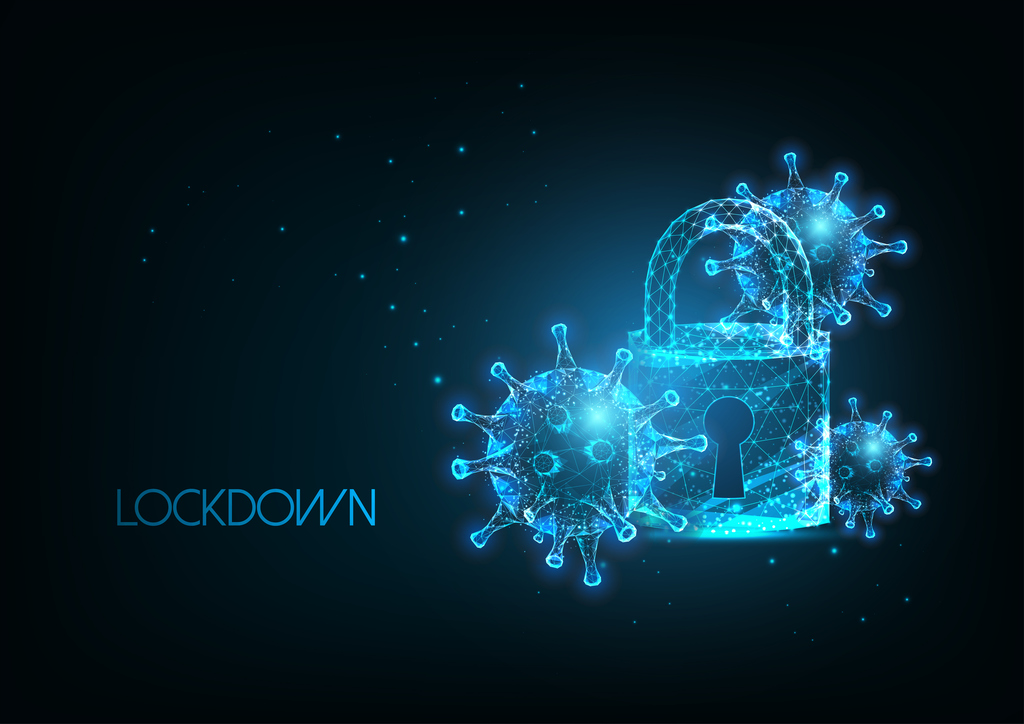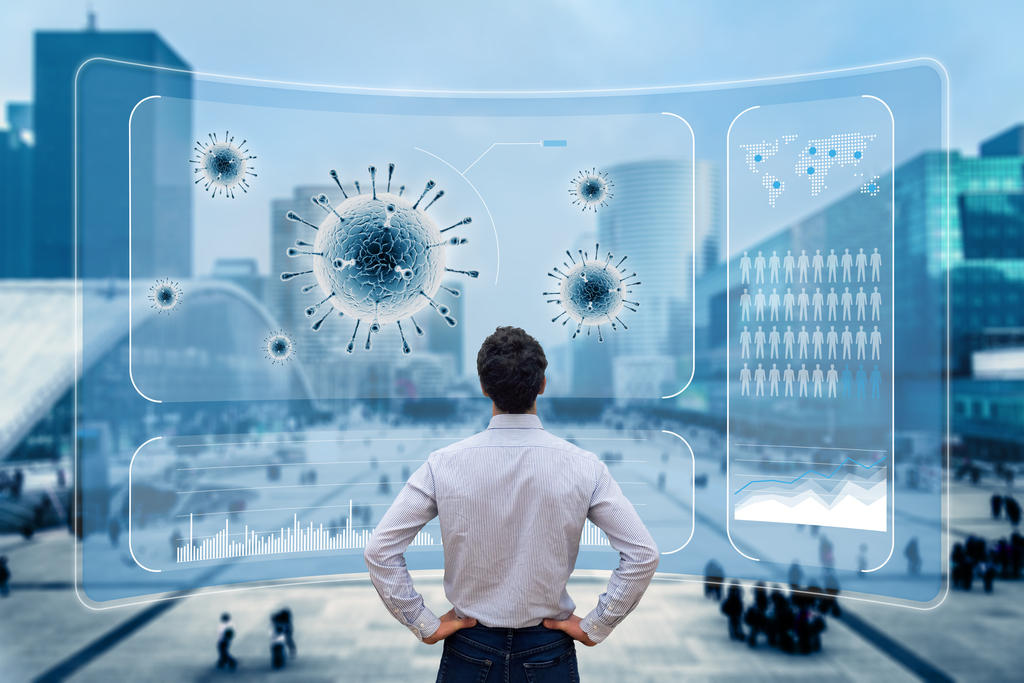
Brian Sims
Editor

Brian Sims
Editor
We’re all experiencing a ‘once in a lifetime’ crisis which is now permanently changing the future landscape for society and businesses. Never before have so many of us experienced such a need for resilience on the personal level, while the globe itself is in survival mode. With second spikes of COVID-19 already creating confusion, fear and panic, Pete Murphy charts a course to safety
WITHIN A paper published in the journal ‘Peace Economics, Peace Science and Public Policy’ back in late August and running under the headline ‘COVID-19 and the Potential Consequences for Social Stability’, Professor Massimo Morelli of Bocconi University in Milan and his colleague Roberto Censolo (from the University of Ferrara) explore the subject of protests and civil unrest surrounding 57 historic epidemic episodes, ranging from the Black Death (which appeared from 1346 and wreaked its havoc until 1353) through to the Spanish Flu (itself prevalent from 1919 through to 1920).
Interestingly, many commentators’ fears that the civil unrest we’ve already witnessed in 2020 will continue following the COVID-19 pandemic – however long it may last – appear to be supported by historical evidence. Morelli and Censolo research has duly unearthed the fact that, post-epidemics, there’s typically a sharp increase in social instability. While we’ve seen clashes, demonstrations and riots on the streets of London and, indeed, elsewhere around the globe, the research indicates that there may be further significant global unrest ahead once the pandemic dissipates and, hopefully, disappears.
Morelli and Censolo observe that: “Overall, the historical evidence shows that the epidemics display a potential unsettling effect on civil society along three dimensions.” Let’s look at each in turn. First, the implemented policy measures tend to conflict with the interests of people, generating a dangerous friction between society and institutions. Second, to the extent that epidemics and pandemics impact differently on society in terms of mortality and economic welfare-related issues, they may well serve to exacerbate inequality.
Last, but by no means least, the psychological shock can induce irrational narratives on the causes and the spread of the disease in focus, which in turn may then result in social or racial discrimination and even the rumblings of xenophobia.
Conspiracy theories
There has been a sharp increase in attacks over conspiracy theories. On the orders of Prime Minister Boris Johnson, the UK went into full lockdown on Monday 23 March. From the following month onwards, as yet unidentified attackers have damaged or otherwise destroyed over 75 mobile phone towers across the UK.
Police have linked these attacks to an online conspiracy theory propagated on several blogs that links the spread of the COVID-19 virus to 5G signals. As well as criminals targeting infrastructure, some 40 telecoms engineers have been attacked or threatened, with one being hospitalised as the direct result of a stabbing incident.
Demonstrations in London over the use of facemasks and the Track and Trace systems have been increasingly aimed towards Government and an alleged conspiracy around somehow controlling the population. Backed by independent scientists, people are gradually growing wary and concerned that ‘all is not what it seems’ when it comes to COVID-19.
Through the weeks and months since March, the number of violent demonstrations has continued to escalate around the world and been duly reflected in outbreaks of social unrest in both Chile and Hong Kong. While the level of social unrest has now begun to lessen, partly as a result of targated Government responses to the COVID-19 pandemic, the possibility of future unrest and violence nevertheless remains high.
Crime is continuing to rise. Across the UK, we’ve seen spikes in criminality as regular drug users lose their jobs while others struggle with now limited employment opportunities. Unable to pay for their drugs, many dependent users may be compelled to resort to theft from people and property alike in order to fuel their habit. Depression and anxiety are likely to enhance the situation as more and more jobs are lost, with many turning to ‘The Dark Side’ to survive or otherwise hide from reality. As more damage is done and economies collapse, the risk of increased tensions becomes very real.
Impact on businesses
The impact on businesses as well as the domestic environment can be particularly significant during times of social unrest, as indeed we’ve seen across part of America in the last few months. While most of the protests have been peaceful, some have escalated into rioting, vandalism and looting. Exceptional scenes across much of the USA, akin to those more typically witnessed in a typical Wild West movie, show people patrolling their streets with a frightening array of weapons to protect their own neighbourhoods (or so they believe).
The global economy is wholly dependent on business owners to adapt and overcome this significant challenge. Whatever’s on the horizon, we need to pick ourselves up, dust ourselves off and make sure that we return to business and a degree of normalcy. As part of that process, creating a safe working environment can help encourage people back to work and provide employees with the confidence that companies are adopting appropriate measures.
At present, there’s a lack of readily available state testing. Implementing some form of rapid screening for COVID-19 will save time and money when compared to laboratory screening procedures. That would help control the spread of the virus by identifying infection both rapidly and accurately.
For its part, Protectfully’s Antigen rapid testing process identifies COVID-19 antigens present in a swab sample and subsequently yields a qualitative ‘Yes’/‘No’ result within the space of just 15 minutes. Administered privately, and as regularly as required, the test kits are helping many companies with their business continuity procedures, while at the same time providing Duty of Care for employees and customers alike.
Fever detections systems are a great way in which to monitor footfall, with many fixed permanent, mobile and hand-held solutions available, ranging from high range for large footfalls to lower range options for offices and gyms, etc. Air filtration systems can be installed and provide additional health benefits. Additionally, greater access control, regular deep cleans, reception and meeting barriers and ‘working bubbles’ can also assist in building a multi-defence environment within what’s deemed a sensible budget.
Trustworthy intelligence
Threat intelligence and effective communication can help when it comes to maintaining business continuity during uncertainty. Reliable, fact-checked data can assist employers in identifying trends through indicators and warnings, enabling them to respond accordingly. At Priavo Security, we monitor information from multiple sources and report on all incidents which may have an impact on a given organisation’s people or business activities. Experienced analysts process information into intelligence through collation, evaluation, analysis, integration and, finally, interpretation. That affords the monitored business complete control over the dissemination of authentic intelligence. That in itself is paramount for keeping calm and carrying on.
Overnight, remote working has transitioned from being a mark of flexibility in the workplace to nothing other than a business necessity. Faced with few alternatives, organisations initiated remote working for those employees able to do so in a bid to endure the crisis as best as possible. While most organisations had just a few days or weeks, at most, to move employees’ to the home environment at the onset of COVID-19, business leaders must now take care to ensure the right work-from-home strategies are in place with a view towards maintaining a positive and productive approach for months – and, possibly, years – to come.
It has been very widely publicised that the shift towards remote working has led to an increase in employee loneliness and isolation often exacerbated by growing concerns around the rise of social instability. If the physical presence of an office-based community is no longer available, regular check-ins, welfare updates and general team comradeship all demand due consideration on the part of the employer.
Effective communication with all employees is essential for companies to operate successfully, ensure business continuity, disseminate authentic intelligence and, if transacting at the multinational level, keep an eye on the pulse of the organisation from a global standpoint. On that note, bespoke and dedicated incident management and communication platforms can provide clear lines of communication and reporting to a remote workforce.
In addition to its application for critical event management, technology is now also being adopted very successfully to strengthen team communications, increase responsiveness, fine-tune the planning process, monitor employee well-being on an ongoing basis and also – and importantly – drive performance.
Ability to adapt
In one way or another, all of us have quickly adapted our way of working with the myriad challenges that COVID-19 has posed. Challenges that, when seen from many angles, we’ve never before experienced. The whole world is now battling with an issue of such immense scale and, that being the case, it’s important that we all continue to communicate and look out for each other.
Rebuilding the economy through business continuity is clearly going to be a priority for the foreseeable future. One of the consequences of the pandemic is that, going forward, people will need to work in different ways. Technology and how we use it to drive productivity will facilitate this change.
As stated, there are now fundamental changes afoot in terms of the way in which businesses operate, predominantly around the whole home working piece, but at the same time there are many employees who desperately want to revert to what they know and welcome in order to transact their daily tasks. In short, a safe and secure office environment.
Undoubtedly, risk management is an increasingly important consideration for all companies harbouring national and international operations. As a business, we work closely with our clients to identify and mitigate risks and maintain a safe environment, in turn enabling continuity during pandemics, periods of social unrest, the outbreak of natural hazards and the emergence of other threats that must be faced. At the end of the day, global cohesion and collaboration will help us all to fight the uncertainties and construct our future.
Pete Murphy is CEO of Priavo Security (www.priavosecurity.com)



Capella House
4 Railway Approach
Worthing
BN11 1UR
UNITED KINGDOM
020 7315 4221